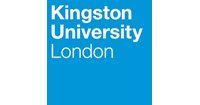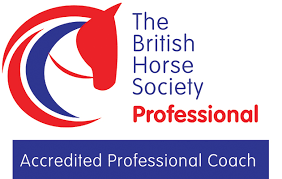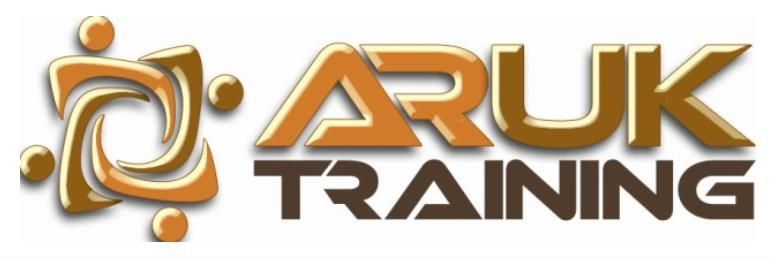
Young Adult Business English Programme
Course ID: 2509220101445ESH
Course Dates : 22/09/25 Course Duration : 5 Studying Day/s Course Location: London, UK
Language: Bilingual
Course Category: Professional and CPD Training Programs
Course Subcategories: Operations and Process Excellence
Course Certified By: ESHub CPD & LondonUni - Executive Management Training
* Professional Training and CPD Programs
Leading to:
Executive Diploma Certificate
Leading to:
Executive Mini Masters Certificate
Leading to
Executive Masters Certificate
Certification Will Be Issued From :
From London, United Kingdom
Course Fees: £5,120.30
Vat Not Included in the price. VAT may vary depending on the country where the course or workshop is held.
Click to Pay
Date has passed please contact us Sales@e-s-hub.com
Course Information
Introduction
The ability to communicate effectively in a globalized business environment is no longer optional but a necessity. For young adults entering the professional world, mastering Business English serves as a cornerstone for career success. This course is designed to equip participants with the linguistic tools and cultural competencies required to navigate international workplaces confidently. As businesses increasingly operate across borders, the demand for professionals fluent in Business English continues to grow. According to the Global Business Language Survey, over 70% of multinational companies prioritize hiring candidates with strong business communication skills.
Despite its importance, many young professionals face significant challenges when transitioning from academic English to the nuanced language of commerce. Miscommunication, unfamiliarity with industry-specific terminology, and insufficient understanding of cross-cultural etiquette often hinder their progress. These gaps can lead to missed opportunities, strained relationships, and reduced productivity. By addressing these pain points, this program ensures that participants are not only linguistically proficient but also culturally aware, fostering better collaboration and decision-making.
The benefits of mastering Business English extend beyond individual growth; organizations stand to gain immensely as well. Employees who can articulate ideas clearly, draft compelling reports, and negotiate effectively contribute directly to improved client interactions and streamlined operations. A study by Harvard Business Review highlights that companies investing in employee language training see an average increase of 15% in customer satisfaction scores. Such outcomes underscore the strategic value of enhancing workforce communication capabilities.
To provide depth and context, this course integrates established frameworks such as the Communicative Competence Model by Canale and Swain, which emphasizes grammatical, sociolinguistic, discourse, and strategic competencies. Additionally, it incorporates insights from intercultural communication theories to prepare participants for diverse work environments. Real-world examples further enrich the learning experience—consider the case of a startup founder whose pitch secured venture capital funding after refining her presentation skills through targeted Business English training.
Practical applications abound in various industries. For instance, a marketing specialist might use persuasive writing techniques learned in this course to craft impactful email campaigns, while a supply chain manager could leverage negotiation strategies to secure favorable contracts. These scenarios demonstrate how Business English proficiency translates into tangible results, making the course highly relevant for ambitious young professionals eager to make their mark.
Ultimately, this program aims to bridge the gap between theoretical knowledge and practical application, empowering participants to thrive in dynamic corporate settings. Whether they aspire to climb the corporate ladder, launch entrepreneurial ventures, or transition into new roles, attendees will leave equipped with the confidence and competence needed to succeed. The Young Adult Business English Programme represents more than just a language course—it is an investment in future leaders.
Objectives
By attending this course, participants will be able to:
Analyze key differences between general English and Business English to adapt communication styles appropriately.
Evaluate common business documents (e.g., emails, reports, proposals) to identify areas for improvement and implement best practices.
Design effective presentations tailored to specific audiences using advanced vocabulary and persuasive techniques.
Apply negotiation strategies and conflict resolution methods to resolve workplace disputes and achieve mutually beneficial outcomes.
Implement cross-cultural communication principles to build stronger relationships with international colleagues and clients.
Synthesize data from case studies to develop solutions for real-world business challenges using appropriate language structures.
Assess personal communication strengths and weaknesses to create actionable plans for continuous improvement.
Who Should Attend?
This course is ideal for:
Recent graduates seeking to enhance their employability in competitive job markets.
Early-career professionals aiming to advance within their current organizations.
Entrepreneurs requiring polished communication skills to attract investors and customers.
These groups will find the course valuable because it addresses critical skill gaps that often impede career progression. While prior exposure to English is recommended, the curriculum accommodates intermediate learners who wish to refine their abilities. Advanced practitioners may also benefit from specialized modules on presentation design and negotiation tactics.
Training Method
• Pre-assessment
• Live group instruction
• Use of real-world examples, case studies and exercises
• Interactive participation and discussion
• Power point presentation, LCD and flip chart
• Group activities and tests
• Each participant receives a 7” Tablet containing a copy of the presentation, slides and handouts
• Post-assessment
Program Support
This program is supported by:
* Interactive discussions
* Role-play
* Case studies and highlight the techniques available to the participants.
Daily Agenda
Daily Schedule (Monday to Friday)
- 09:00 AM – 10:30 AM Technical Session 1
- 10:30 AM – 12:00 PM Technical Session 2
- 12:00 PM – 01:00 PM Technical Session 3
- 01:00 PM – 02:00 PM Lunch Break (If Applicable)
- Participants are expected to engage in guided self-study, reading, or personal reflection on the day’s content. This contributes toward the CPD accreditation and deepens conceptual understanding.
- 02:00 PM – 04:00 PM Self-Study & Reflection
Please Note:
- All training sessions are conducted from Monday to Friday, following the standard working week observed in the United Kingdom and European Union. Saturday and Sunday are official weekends and are not counted as part of the course duration.
- Coffee and refreshments are available on a floating basis throughout the morning. Participants may help themselves at their convenience to ensure an uninterrupted learning experience Provided if applicable and subject to course delivery arrangements.
- Lunch Provided if applicable and subject to course delivery arrangements.
Course Outlines
Foundations of Business English
Understanding the distinctions between general and Business English.
Key grammar rules and vocabulary for professional contexts.
Writing formal emails: Structure, tone, and etiquette.
Active listening and note-taking during meetings.
Day 2:
Document Creation and Report Writing
Crafting concise and clear memos and summaries.
Developing structured business reports with introductions, analyses, and conclusions.
Avoiding common pitfalls in technical writing.
Peer review exercises to improve document quality.
Day 3:
Presentation Skills
Organizing content for maximum impact.
Using visual aids effectively.
Delivering confident and engaging speeches.
Handling Q&A sessions professionally.
Day 4:
Negotiation and Conflict Resolution
Preparing for negotiations: Research and strategy development.
Applying win-win negotiation techniques.
Managing conflicts diplomatically.
Role-playing exercises to practice learned skills.
Day 5:
Cross-Cultural Communication
Recognizing cultural differences in communication styles.
Adapting messages for diverse audiences.
Building rapport with international stakeholders.
Reflective session: Creating a personal action plan for ongoing growth.



















































